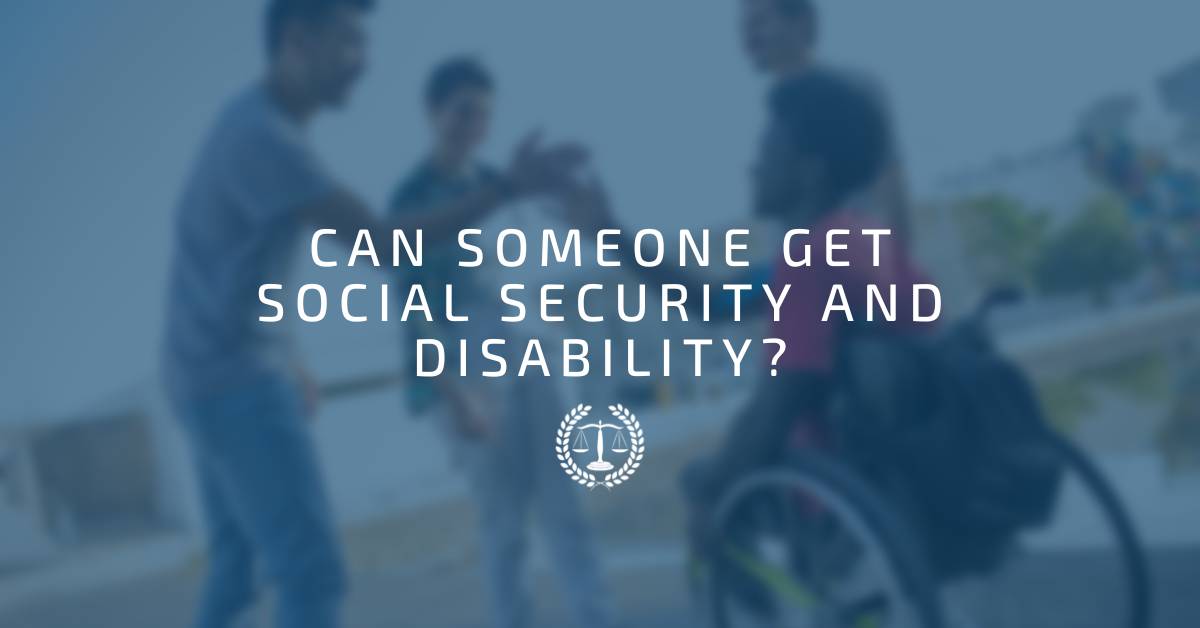Social security and disability are two important benefits that can help people in circumstances that may keep them from working. You may be wondering if you can get both of these benefits at the same time. The short answer is no — but there are a few reasons why this might happen.
Yes, but you won’t get both
You can only have one of the two at a time. If you get a disability, then you won’t be eligible for Social Security (SSDI). On the other hand, if you do receive SSDI, then your chances of receiving disability benefits are greatly reduced.
What is an SSDI?
Social Security Disability Insurance (SSDI) is a federal insurance program that provides benefits to people who are unable to work because of a long-term disability.
SSDI replaces some of an individual’s income if they can’t work due to a disability. The Social Security Administration (SSA) determines whether you qualify for SSDI, and how much your monthly benefit will be.
There are two types of SSDI: DI Regular and DI Limited. If you meet certain eligibility requirements, you may be eligible for either type:
What kinds of disabilities qualify for an SSDI?
When you apply for disability benefits, the Social Security Administration will examine your medical records and determine whether your disability is severe enough to prevent you from working. In order to meet this standard, your condition must be both physical or mental and expected to last at least 12 months. Additionally, it must prevent you from performing any work that exists in significant numbers in the national economy.
While there’s no strict list of what qualifies as a “severe” disability under these guidelines (rather than simply being “disabled”), generally speaking, an applicant must show evidence that their condition has limited their ability to perform self-care tasks without assistance; requires constant supervision; prevents them from working full time or even part-time; requires special equipment or accommodations (like wheelchair ramps); is life-threatening, or other potential issues.
How much do you get from an SSDI?
The amount you receive depends on your age and the severity of your disability. If you are under 65 years old and have a severe physical or mental impairment, then you will get a monthly benefit. If you are over 65 years old with a very severe physical or mental impairment, then you can get an additional monthly benefit based on your age when you become disabled.
Generally speaking, if you have been approved for Social Security Disability Insurance (SSDI) benefits before reaching full retirement age (FRA), then the amount of money that will be paid out to support your living expenses is temporary in nature. This means that at some point during this period between approval and reaching FRA, someone must be working enough hours per month to receive an income from their work so as not to fall below certain thresholds set by federal law regarding eligibility for SSDI benefits.
You can only have either social security or disability.
You can only have either SSDI or Social Security.
SSDI is a federal benefit, and it is not a retirement benefit. If you have been eligible for SSDI for the past five years, then your SSDI benefits will stop at full retirement age (66 years old).
To get Social Security disability benefits, you must be disabled enough to not be able to work at any job during an evaluation period of five months. There are two programs that determine whether someone has been unable to work due to their illness or injury: Social Security Disability Insurance (SSDI), administered through the Social Security Administration (SSA); and Supplemental Security Income (SSI), administered by individual states under an agreement with SSA.
Social security is an important benefit for people with disabilities, but it’s not the only one. If you qualify for disability and are denied social security disability benefits, it’s worth looking into other programs like SSI or Medicaid.
When you need practical law advice or assistance, we ask that you reach out to our experts at the Mestayer Law Firm.
No representation is made that the quality of legal services performed is greater than the quality of legal services performed by other lawyers.
This article does not create an attorney-client relationship. I am licensed to practice law in Mississippi and have based the information presented on US laws. This article is legal information and is for entertainment and informational purposes only and should not be seen as legal advice. You should consult with an attorney before you rely on this information. Any information provided in this blog is accurate and true to the best of my knowledge, but there may be omissions, errors or mistakes.

